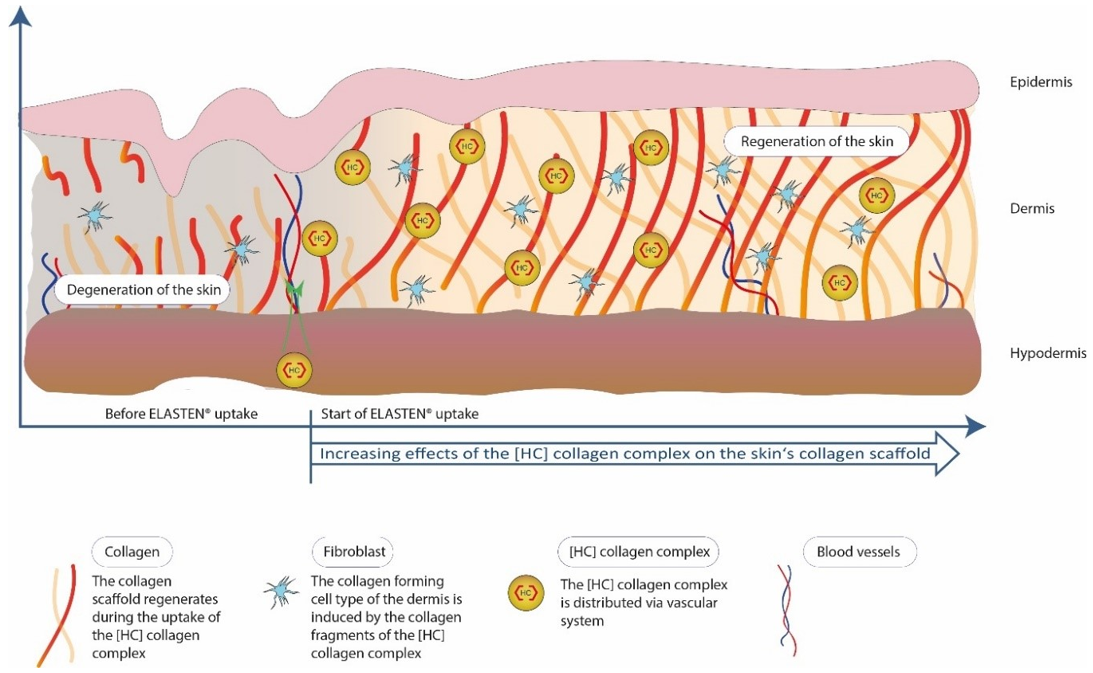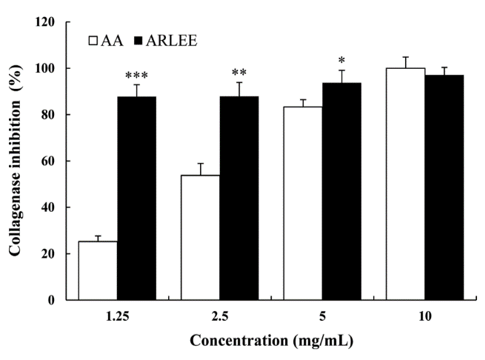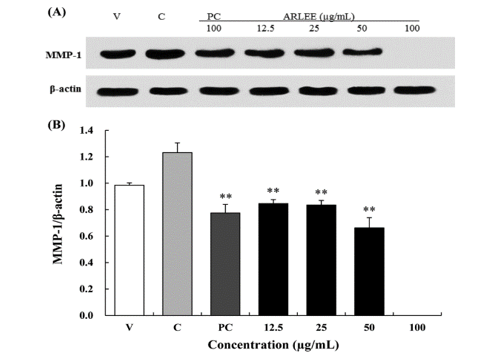Skin Anti-Wrinkle

Skin aging may occur simultaneously with two different biological processes: (i) intrinsic aging; and (ii) extrinsic aging.
Intrinsic aging is a slow process that causes changes in tissue structure and impairs the function of the skin in the absence of additional factors. The clinical features of intrinsically aged skin are usually not evident until old and are characterized by fine lines and occasionally exaggerated expression lines. Functionally, intrinsically aged skin is drier and less elastic than more youthful skin.
In contrast, externally aged skin shows obvious and coarse wrinkles, mottled hyperpigmentation, and a significant loss of elasticity and retraction. The two main environmental effects that contribute to extrinsic aging are (i) long-term exposure to solar ultraviolet (UV) radiation (called photoaging) and (ii) smoking.
 Figure 1. A Collagen Supplement Improves Skin Hydration, Elasticity, Roughness, and Density (Bolke, et al. 2019).
Figure 1. A Collagen Supplement Improves Skin Hydration, Elasticity, Roughness, and Density (Bolke, et al. 2019).
Dermal fibroblasts produce collagen, elastin, and hyaluronic acid. However, factors such as UV rays and aging cause damages to fibroblasts, so that the skin becomes less firm and less elastic, and wrinkles occur.
Creative Bioarray provides in vitro skin model-based testing services to evaluate the anti-wrinkle efficacy of active substances.
Your Needs
- To screen cosmetic formulations for skin anti-wrinkle
- To evaluate the anti-wrinkle effect of products
- To fully understand how skin tissue forms wrinkles
- To look for a CRO performing skin anti-wrinkle efficacy testing
- Need a custom in vitro skin model
Our Capability
In vitro skin models available
- Normal human epidermal keratinocytes (NHEK)
- Reconstructed human epidermis (RHE)
- Full thickness skin model
Efficacy and Screening Tests available
- Evaluating the anti-wrinkle efficacy of active substances/compounds
- Evaluating the anti-wrinkle effect of different formulations
- Customized testing based on customer needs
Endpoints
- Cell viability
- The activity of antioxidant-related enzymes
- Inhibition of collagen degradation ability
- Elastase inhibition ability
- Inhibition of cellular senescence (apoptosis, mitochondrial membrane potential)
- In vitro tissue morphology
- Collagen/collagen fibril production
- Elastin/elastin fiber production
- Hyaluronic acid production
- Related gene expression assays (MMP-1, NEP, HAS-1)
Techniques
- qPCR, qPCRarray, RT-PCR
- ELISA
- Western-Blotting
- Specific immuno-labeling
- Histology (Fontana/Masson staining)
- RNA extraction
- Protein extraction
- Macroscopy
Study Examples
 Figure 2. Collagenase activity inhibition of ARLEE relative to the control ascorbic acid. AA: ascorbic acid, ARLEE: A. rossii leaf ethanol extract (Ha, et al. 2015).
Figure 2. Collagenase activity inhibition of ARLEE relative to the control ascorbic acid. AA: ascorbic acid, ARLEE: A. rossii leaf ethanol extract (Ha, et al. 2015).
 Figure 3. Effect of ARLEE on MMP-1 protein expression in human dermal fibroblasts.
Figure 3. Effect of ARLEE on MMP-1 protein expression in human dermal fibroblasts.
In vitro Skin Models
References
- Bolke, Liane, et al. "A collagen supplement improves skin hydration, elasticity, roughness, and density: Results of a randomized, placebo-controlled, blind study." Nutrients 11.10 (2019): 2494.
- Ha, Bi Gyeon, et al. "Antioxidant Activity and Anti-wrinkle Effects of Aceriphyllum rossii Leaf Ethanol Extract." Toxicological research 31.4 (2015): 363-369.
Explore Other Options